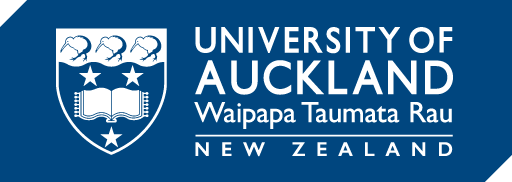by sfab358 | Sep 22, 2019
27th November 2019, 2-4pm, room 303-G014 (Science building)
To attend, please RSVP here
| 2pm |
Welcome by the Theme Leader
Steven Galbraith (UoA, Mathematics) |
| 2:15pm – 3.45pm |
CMSS Members – Lightning Talks
- Simona Fabrizi (UoA, Economics): Voting under ambiguity
- Matthew Ryan (AUT, Economics): Mathematical psychology and the algebra of choice
- Arkadii Slinko (UoA, Mathematics): Condorcet Domains
- Patrick Girard (UoA, Philosophy): Facing the inevitable: avoiding, tolerating, or embracing inconsistency
- Steffen Lippert (UoA, Economics): Transfers and climate cooperation
- James Tremewan (UoA, Economics): An overview of my ongoing research using experimental methods in social science
- Thomas Pfeiffer (New Zealand Institute for Advanced Studies (NZIA), Massey University): Predict to decide: Decision markets in theory, experiments and real-world implementations
CMSS Affiliated Postgraduate Students – More lightning talks
- Michael Gordon (PhD Candidate, Massey University): Large-scale forecasting in the DARPA SCORE project
- Wenlong (Stan) Wang (PhD Candidate, Massey University): Towards implementing a decentralized decision market application
- Yen Ling Tan (Honours student, UoA): Consumer decision-making under uncertainty on digital platforms
|
| 3:45pm –
4pm |
Discussion on future activities of the CMSS and/or Knowledge Sciences Theme
Chair: Steven Galbraith (UoA, Mathematics) |
| 4pm |
Drinks and discussions |
by sfab358 | Sep 19, 2019
The CMSS is hosting the 2019 edition of the event. Visit this website to know more about the event. Everyone welcome to join any of the sessions planned for this meeting!
by sfab358 | Sep 12, 2019
Speaker: Yi-Hsuan Lin (Academia Sinica, Taipei)
Paper to be presented: “Stochastic Choice and Rational Inattention”
Date, Time and Venue: Wednesday, 23 October 2019, 15:00-16:00, 260-5115 [Business School Building, Level 5]
Abstract: We consider a decision maker who first chooses an information structure, and then chooses an action after receiving a signal. The cost of information may be either material or cognitive and is unobserved. Thus, cost must be inferred from observable behavior. We assume that the choice of action is observed, but the choice of information is not. Due to the unobservability of the acquired private information, the choice of action appears random from an outside analyst’s point of view. We show that, given only stochastic choice from menus of actions, an analyst can identify the agent’s taste (risk attitude), prior belief, and information cost function. Identification of the cost function from behavior stands in contrast with the large literature on applications of the rational inattention model where the functional form of the cost function is assumed known by the analyst (Sims 2003). In addition, we discuss the behavioral implications of our model which are weaker than some key properties of random expected utility models. In particular, the property of Monotonicity (the addition of a new action cannot increase the probabilities of choice of the existing actions) is violated in our model because of the endogeneity and hence menu-dependence of private information. However, two axioms that jointly weaken Monotonicity are satisfied. Finally, we provide necessary and sufficient conditions for stochastic choice to be rationalized by our model.
Everyone Welcome!

Recent Comments